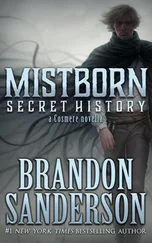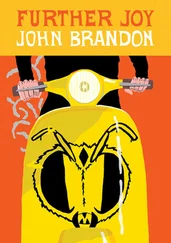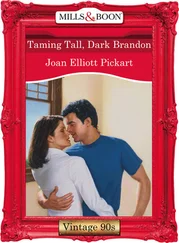Time hadn’t stopped. Minutes were still passing. Minutes could make the sun rise. Without minutes, there were no days, no years. Toby wondered if Kaley had been cooking this up for a long while or if she’d acted out of desperation. He wondered how many times she’d tried to reach the latch, constructed her tower and failed and waited it out for more building materials, or had Toby’s absence prompted her to rely on herself? She was recast now. She had her own schemes. Her story was her own.
Toby dropped his book bag on the ground and pulled on his mask. He began jogging circles around the bunker, winding wider each time. He could’ve run forever. He didn’t know if Kaley had been out for days or if she’d waited for the first light in the clogged vents this very morning. He knew she hadn’t been discovered, rescued. Toby would’ve heard. He had to get to her before anyone else did. She couldn’t be found anywhere close to the bunker, anywhere close to Uncle Neal’s property. Toby’s fingerprints were all over the bunker. What Toby could not think about was that she might be dead. He might find her dead or fail to find her, dead. All he had was what he felt, and he felt that she was alive.
The light was thickening. Toby knew Kaley hadn’t found her way to the road. She hadn’t gotten close enough to hear the cars whizzing past on 19. She was still in these woods. Toby was nowhere near stopping. He weaved around thickets and ducked low branches, his mask already sopping with sweat. Colors were showing now, the green leaves and white bay flowers and red azaleas. The kidnapping was, for the first time, just between Toby and Kaley. It had nothing to do with Toby’s evil destiny, nothing to do with Shelby or her father, nothing to do with Uncle Neal, Toby’s mother. It was just a crime, a violation of certain laws. The authorities couldn’t punish Toby, but there were other punishments.
Toby was slowing. He’d thought he could run forever but he couldn’t. His next lap would take him almost onto Uncle Neal’s property, almost out to the swamp that extended back and blended into the springs. Toby thought he could hear the cars on 19, all rushing to get someplace important. He slowed to a walk. He had no bearing on the speed of the minutes. The minutes were not aware of his situation. He recognized every scent on the morning air, each of them full and slow. He pressed his palm against the rough bark of an oak tree as he stepped past it.
When he saw Kaley’s stubbly orange hair reflecting the first honest morning rays, it took him a moment to believe it. He saw her skin and her scuffed white shoes. She was standing still. She was standing. She didn’t see Toby yet. He watched her. She kept looking this way and that, deciding which way to go, her head full of her own thoughts. She couldn’t move. She seemed not to want to. The cars could be heard, faintly, and their noise came from every direction.
Toby walked up and Kaley didn’t run. Her face lost its alertness. She wasn’t scared or defiant. Toby didn’t know what to do. He felt he had no right to drag her, to pick her up or manhandle her. He felt unwilling. He felt like pointing Kaley in the direction of the road and nudging her into motion. He wanted someone to step in now, someone who knew what he was doing.
Toby made a noise and Kaley moved toward him. She wasn’t serene or panicked. She may have felt just like Toby. He knew to begin walking and she walked next to him and he led her back to the bunker. They were far away from it, maybe half a mile. Toby felt like a tyrant. It wasn’t merely a violation of laws.
“I’m sorry,” he whispered. It was the first time he’d ever spoken to her.
She didn’t look up. She kept dragging her feet through swaths of weeds, knocking the frail flowers onto the floor of the woods.
At school, Toby was feverish. He walked to class after class and then he walked to the lunchroom. The screeching of the other students, the reek of the county pizzas under the heat lamps, the fluorescent light glaring off the linoleum. He sidled back out against a current of bodies and found a quiet hallway. He walked as slowly as he could, perusing the tacked signs. Most of the classrooms were empty. Toby strolled down near the band room and back.
He went up the eighth-grade liberal arts wing, ducking under an ornate banner. He approached the teachers’ lounge and could hear them inside — Mrs. Conner and the lady who taught Spanish. He hugged the opposite wall so he wouldn’t be seen out the little window. Here was Mr. Hibma’s door, open a crack. The lights were off but Toby heard a noise, a crunching sound. He nudged the door open and stepped inside, feeling like he was trespassing but also like he’d found an oasis. He couldn’t remember being here just an hour before, sitting in this room for class. He recognized the noise now, a pencil being sharpened. He saw Mr. Hibma’s desk. Mr. Hibma slouched in his chair, his back to Toby, turning the crank on the sharpener, which was bolted onto a big steel cabinet. The microwave beeped, startling Toby, and he looked over and saw a burrito in it. It smelled as bad as the county pizzas.
“Mr. Hibma,” Toby said, not wanting to be loud but wanting to be heard.
Mr. Hibma’s head moved slightly and his cranking let up. He didn’t answer Toby, though. He began cranking faster, before stopping and sighing and holding the pencil in the air. The pencil was a nub, just the eraser and a point. Mr. Hibma dropped it in the trash.
“I’m supposed to be in lunch,” Toby offered.
Mr. Hibma looked at the clock without curiosity. “What can I do for you, Toby?”
Toby had never seen Mr. Hibma humorless. He was like a dying plant.
“I need to talk to you,” Toby said.
Toby had departed the lunchroom and had made his way to the liberal arts wing, had come into Mr. Hibma’s classroom and was now standing here staring at his geography teacher. His stomach was a stone. Mr. Hibma was the only adult who could help or hurt him. Toby cleared his throat.
“I’m not really the problem guy,” Mr. Hibma said.
“You are for me,” said Toby.
“I wanted to be the problem guy, but I can’t. At this point, I’m getting by hour by hour, class by class.”
“That’s how I get by,” Toby told him.
Mr. Hibma splayed his fingers on the desk. “You’ve still got a chance, but it’s too late for me.”
“I came here to say something,” Toby said. “Not to listen.”
“Do you think you’re my favorite or something? I gave you all those detentions because that’s what teachers do and I was trying to be a teacher. I don’t have a favorite. If you want to be somebody’s favorite, start kissing ass. Definitely don’t bother people during lunch.”
Toby used the sound of Mr. Hibma’s voice to brace himself. “You have to fix something for me,” he said. “I don’t want detention. I want to be in real trouble.”
“You’re not going to be young much longer.” Mr. Hibma did something drastic with his mouth, some kind of smile. “Don’t waste time trying to tell people about your problems. Do things that are youthful until you’re not allowed to do them anymore.”
The microwave beeped again. This time Mr. Hibma rose and pulled the burrito out with a paper towel and set it on a counter. He didn’t return to his chair.
“That girlfriend of yours, I’d concentrate on her and quit going around seeking advice. It doesn’t become you.”
“I’ve never asked advice. You’re thinking of someone else. Advice can’t help me.”
“You stole something or you broke something. That’s all any of you kids can do.”
“And what can you do?” said Toby. “I bet I can do worse things than you can.”
Mr. Hibma glowered at Toby. Whatever he was feeling toward Toby, it was pure. Toby was catching up with the moment. Mr. Hibma was blowing him off, and he was allowing Mr. Hibma to do so. “You’re not tough,” Toby said. “Whatever other problems you have, another is that you’re not a tough person.”
Читать дальше












